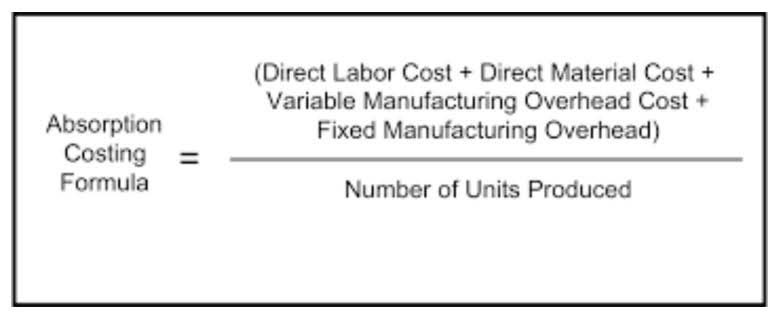Bookkeeping
Bookkeeping Vs Accounting: Whats The Difference?

In the world of healthcare, accurate and efficient bookkeeping is essential for maintaining financial health and ensuring compliance with complex regulations. The unique aspects of bookkeeping for medical practices, including patient billing, insurance claims, and compliance requirements, demand a specialized approach. While managing bookkeeping in-house is an option, many medical practices find it beneficial to seek professional bookkeeping assistance to navigate the intricacies of healthcare financial management.
Fluctuating healthcare policies and insurance plans
- Detailed ledgers are maintained, including the general ledger for overall activity, accounts receivable ledger, and accounts payable ledger.
- A skilled bookkeeper can help you set up your payroll management system and process changes such as salaries or deductions so that you can spend more time focused on patient care.
- Additionally, having a budget in place guarantees that funds are devoted to crucial tasks like patient care, employee wages, and equipment upkeep, all of which support the practice’s long-term viability.
- Automation and technology are both beneficial when it comes to bookkeeping for medical practices — provided they are used to your advantage.
- This keeps positive dialogue open with the patient since there are fewer issues or concerns, impacting the second factor as well.
These tools improve accuracy and compliance while also streamlining bookkeeping. It’s crucial to keep accurate records of your earnings, expenses, and taxes. It assures compliance with healthcare-specific tax laws, offers insight into the practice’s financial health, and facilitates efficient financial planning and budgeting.
The Importance of Bookkeeping for Doctors and Medical Practices
Being transparent not only makes it easier to identify areas of financial strength and weakness, but it additionally serves as the foundation for a solid financial strategy. Accounting for medical practices is a multifaceted and evolving field, integral to the successful https://www.bookstime.com/ operation of healthcare facilities. Mastery of this discipline ensures the economic well-being of medical practice and supports the provision of top-notch healthcare services. Compliance with healthcare regulations is a moving target due to frequent legislative changes.

Outsource payroll processing
Accounting practices are a set of rules, procedures, and standards that govern the recording and reporting of financial transactions. Accountants are more specialized, so not every company has an in-house accountant. You can use a firm or work with accounting software for your business needs. Bookkeepers make sure the information in the books is accurate and that the books are reconciled each month. Since bookkeeping is a more straightforward process than accounting, it is something that many people can (and do) opt to take care of themselves. As your business grows and you begin making higher profits, hiring staff and handling more transactions, however, it may make sense to outsource the details of bookkeeping to someone else.

QuickBooks has been known for having a user-friendly design and many useful features. By automating transactions, tying bank accounts together, and generating crucial financial data, it makes complicated financial activities simpler. Tax compliance and payroll management are also made easier with QuickBooks. It is a flexible option for doctors and when performing bookkeeping procedures for a medical office it is important to other medical professionals due to its ability to interact with other healthcare applications. Bookkeeping is often seen as the ordinary side of running a medical practice, overshadowed by the more trendy aspects of patient care and medical advancements. However, the importance of bookkeeping for doctors and medical practices cannot be large.
- Savvy business owners create a budget before the start of each calendar year.
- Doctors can use it to define financial objectives, distribute resources effectively, and make informed decisions regarding the expansion and development of their practices.
- Implementing organized bookkeeping systems and financial best practices is always important for medical clinics to operate profitably and compliantly.
- The financial transparency required by physicians and other healthcare professionals to make educated decisions about the expansion and development of their practice is provided by effective bookkeeping.
- Even if you are using an online system for bookkeeping, delegating an employee with keeping track of it on a daily basis is very important.
The system you choose to use doesn’t need to be complicated and the ledgers should be straightforward, especially if you have just a few or no employees. The most important parts of doing your own bookkeeping are staying organized and keeping track of the details. 18.4 Describe the logistics of accepting, endorsing, and depositing checks from patients and insurance companies. Accrual accounting can be more resource-intensive, often requiring experienced accounting staff or external accounting services. Cash basis accounting is generally easier to manage and requires fewer accounting resources.
And if you’re starting your own medical practice, this can become a bit stressful. No business can operate without sufficient cash inflows each month, and many firms do a poor job of forecasting expected cash flows. If you don’t frequently review and update your chart of accounts, you risk having inaccurate accounting records. One of the first things you should do when running or starting a business is to ensure your accounting system operates as smoothly as possible. Accountants advise leadership on how to make more strategic financial changes that save the company money or generate more profit.
Complex billing and coding systems

With cloud storage, medical practices can securely store documents and records without taking up physical space in the office. A secure internet connection provides access to files from anywhere, allowing your staff to update files in real-time. Bookkeeping focuses on recording and organizing financial data, including tasks such as invoicing, billing, payroll and reconciling transactions. Accounting is the interpretation and presentation of that financial data, including aspects such as tax returns, auditing and analyzing performance. When an effective bookkeeping system is in place, businesses have the knowledge and information that allows them to make the best financial decisions. Tasks, such as establishing a budget, planning for the next fiscal year and preparing for tax time, are easier when financial records are accurate.
Here’s how you can improve cash flow and provide timely, accurate data to your CPA and board. Another well-liked cloud-based accounting program appropriate for medical practices is Xero. It enables healthcare providers to effectively manage revenue, costs, and billing. Real-time collaboration tools in Xero enable smooth communication between practitioners and their bookkeepers or financial advisors.
